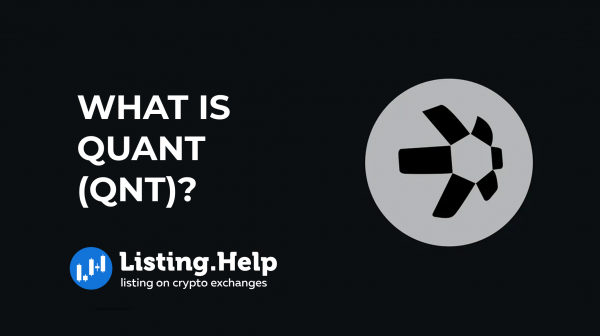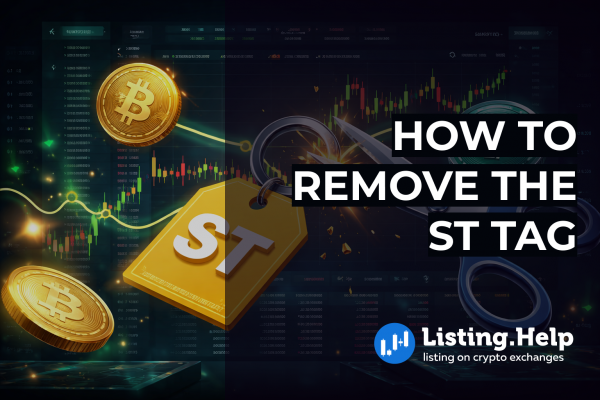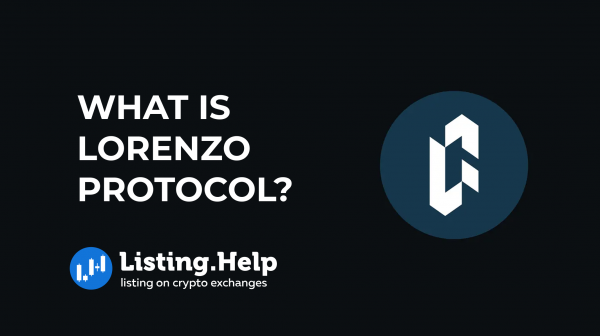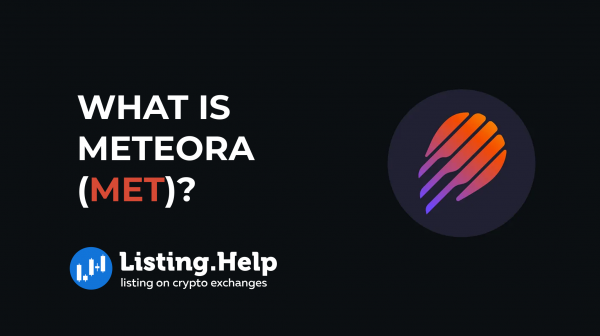What is Crypto Market Making?
 September 11, 2024
September 11, 2024 Updated: January 26 2025, 07:11
Updated: January 26 2025, 07:11
LEAVE A REQUEST
Launching your own token project? Our experts are ready to help with listing on exchanges, market making, marketing and other solutions
SUBMIT APPLICATIONMarket making plays a crucial role in keeping financial markets healthy. By providing liquidity, narrowing the gap between buying and selling prices, and promoting fairness, market makers contribute to the smooth operation of tokenized economies.
This guide is intended to offer a clear overview of what market makers do, shedding light on their functions and responsibilities within the fast-changing world of digital assets.
When there is more transparency, all participants, especially token issuers, can better understand the value of the services market makers provide.
What is Market Making?
At its core, a market maker is an entity responsible for determining the fair value of assets by pricing them appropriately. Market makers are always ready to buy or sell assets, ensuring that fair prices are available. This applies across various types of assets.
In traditional finance, market makers play an essential role in the trading of publicly listed companies’ stocks. Their involvement benefits both investors and the companies themselves by ensuring the trading process runs smoothly. Market makers focus on enhancing liquidity, which refers to how easily an asset can be bought or sold without causing large price shifts.
Take, for example, Company XYZ, whose stock is listed on an exchange. Market makers constantly make offers to buy or sell shares, setting prices based on what they believe to be the stock’s fair value. Their activity maintains liquidity, helping to prevent excessive volatility or drastic price changes in the stock.
The stock of Company XYZ, which is highly liquid, can be traded easily without a significant effect on its price. Market makers enable these trades even when there may not be an immediate buyer or seller, allowing investors to buy or sell the stock without significant price disruptions.
On the other hand, assets with lower liquidity, such as newly issued or infrequently traded stocks, tend to see larger price fluctuations with even small trades. In these cases, market makers play a vital role by turning low-liquidity assets into more liquid ones.
They do this by consistently offering to buy and sell, helping to smooth out trading and boost liquidity. This is important because it allows market participants to buy or sell their positions without causing substantial price changes, which supports market growth overall.
How Market Makers Work?
Market makers provide buy and sell prices (called two-sided markets) for a set number of shares. When they receive a buy order, they sell shares from their inventory, allowing the trade to be completed quickly.
To maintain market efficiency, market makers are required to constantly display prices at which they are willing to buy (bid) and sell (ask) securities. In addition to providing these prices, they must indicate the number of shares they are willing to trade and how often they will quote at the best bid and offer prices.
Regardless of market conditions, whether stable or volatile, market makers are expected to uphold these obligations. Their discipline ensures that trading continues to flow smoothly, even during unpredictable market movements.
Regulatory
Market makers operate according to the rules set by the exchanges they are part of, which are regulated by national securities authorities. In the U.S., this oversight comes from the Securities and Exchange Commission (SEC). The specific duties and regulations for market makers vary depending on the exchange and the type of asset they are trading, whether stocks, options, or other instruments.
Being a market maker involves a commitment to consistently buying and selling securities of specific companies to broker-dealer firms that are part of an exchange.
How Market Makers Generate Profit?
Market makers earn revenue by taking on the risk of holding assets, which may lose value after they are bought from sellers but before they are sold to buyers.
In addition, they profit from the price difference between the bid and ask prices. For example, if a stock’s bid price is $100 and its ask price is $100.05, the market maker buys the stock for $100 and sells it for $100.05. Even though the price difference is small, the large volume of trades they handle allows them to generate significant income over time.
Why Work with a Crypto Market Maker?
A market maker functions much like a strategic buyer, purchasing assets when prices are low and selling when they rise. This ensures constant market activity, making it easier for people to trade tokens at more consistent prices. Essentially, this is how market makers provide liquidity.
Ensuring Liquidity
By consistently buying and selling assets, market makers create a balanced market, encouraging traders to engage more. Attracting natural trading activity, rather than manipulating volume with unethical tactics like wash trading, is essential. This distinction plays a crucial role in maintaining market integrity and building trust among investors. Market makers, by optimizing liquidity, contribute directly to natural trading volume and help boost investor confidence.
For token issuers, understanding the value of a liquid market is key to promoting their token’s success. Focusing on growing natural trading activity, rather than engaging in deceptive practices, fosters long-term market stability and trust. In this context, market makers help support sustainable growth for both the token and its broader ecosystem, highlighting the need for ethical behavior in financial markets.
Reducing Arbitrage Opportunities
Arbitrage occurs when traders buy an asset cheaply in one market and sell it for a higher price in another, profiting from the price difference. Tokens frequently affected by arbitrage may be seen as unstable, creating challenges for issuers trying to maintain value and reputation. Price volatility can negatively impact investor sentiment.
Crypto market makers help minimize arbitrage-related price imbalances. By consistently quoting prices across multiple trading platforms, they reduce discrepancies that could be exploited by arbitrageurs and ensure liquidity is available. Their capacity to handle large trades is crucial in preventing sharp price fluctuations and inefficiencies between markets.
Market Making and Token Adoption
Liquidity is critical for a token’s overall market performance and adoption. Market makers, acting as third-party facilitators, enhance liquidity and optimize its availability, making a direct impact on token adoption.
Here are three key ways market making helps with token adoption:
Stability: In the volatile world of crypto, stable assets are highly valued. Achieving stability requires significant liquidity. Market makers play a vital role in stabilizing asset prices by narrowing the gap between buy and sell prices, contributing to a more predictable market over time.
Trust: By improving liquidity, market makers drive natural trading volume. This increased volume benefits emerging projects, helping them secure a strong market position and demonstrating their competitiveness. Greater liquidity reinforces investor confidence, building trust in the project’s potential for long-term success.
Market Feedback: Token issuers, often focused on product development, may not have the resources to monitor market dynamics closely. Market makers can provide valuable insights into how a token’s design and economics perform in the market, which is especially useful for newer projects.
Collaborating with Exchanges
Exchanges often work with market makers to maintain liquidity and minimize price discrepancies that arbitrage traders might exploit. In return, market makers can earn incentives such as fee rebates for their trading activities. This relationship is mutually beneficial: the exchange boosts trading volume and becomes more efficient, while the market maker gains better capital efficiency.
For token issuers, having a market maker involved strengthens the case for listing their token on an exchange. A market maker ensures that users can trade the asset smoothly, which in turn drives natural trading volume.
Additional Liquidity Options
Market makers can also assist large investors with trades that bypass exchanges altogether. They offer over-the-counter (OTC) services, directly matching large orders outside of regular exchanges. This helps avoid slippage and other inefficiencies that would occur if these large trades were placed in the open market, which could otherwise cause significant price impacts.
For instance, an institutional investor entering the crypto market might face slippage costs on a decentralized or illiquid exchange. Executing a large order could lead to higher costs and immediate price changes due to the reduced liquidity available. A market maker’s OTC services can offer a smoother and more cost-effective trading experience for these larger players.
The Future of Crypto Market Making
Crypto market making is poised for significant growth, driven by technological advancements and shifting regulatory frameworks. As the industry develops, we expect greater involvement from institutional investors and closer alignment with traditional financial markets. The introduction of Artificial Intelligence (AI) and Machine Learning (ML) will likely reshape how trades are executed, making strategies more efficient and data-driven.
A major shift could come from decentralized finance (DeFi) protocols. These systems have the potential to revolutionize market making by not only improving efficiency but also broadening access. Through smart contracts and automated liquidity provision, DeFi can allow more participants to engage in market making. Innovations like layer-2 scaling solutions will be key to tackling issues such as network congestion and high transaction costs, making market-making processes more streamlined.
Looking ahead, continuous adaptation and innovation will be essential for market makers to remain competitive. As the regulatory and technological landscapes evolve, staying agile will be critical to maintaining compliance and succeeding in the ever-changing crypto environment.

For more insights and updates on the crypto world, don’t forget to check out our blog at Listing.Help






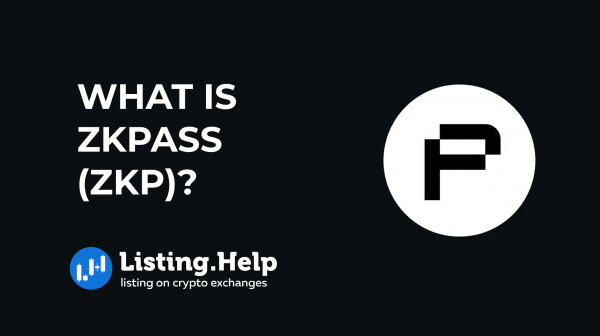
 February 19, 2026
February 19, 2026 

